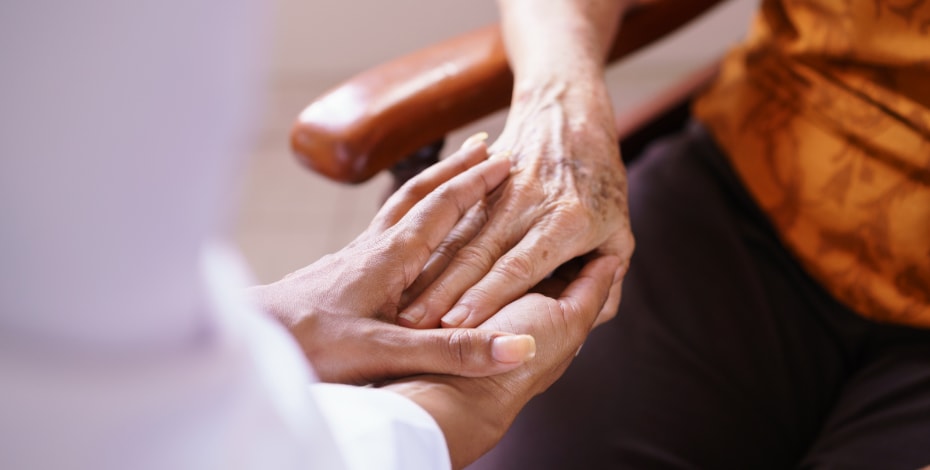
Physios well placed to help with pain

CareSearch Research Associate Susan Gravier and Redcliffe Hospital Cancer Care and Palliative Care Services senior physiotherapist Nicola Khamis discuss helping people manage pain at or near the end of life.
Pain is unique and complex with physical, psychological, emotional, social, and spiritual components (English 2015). Common in all advanced diseases (caresearch.com.au), pain is often undertreated (Rayment & Bennett 2015). Pain in advanced disease may be directly linked to the disease process or its treatment; an indirect effect of the disease due to disuse, deconditioning and abnormal movements or postures; or something unrelated. Unrelieved pain can interfere with sleep, activity and interaction with others, and cause psychological and existential distress.
The way a person thinks and what they understand about their pain will influence their ability to function or enjoy life. Pain type and intensity may trigger fears of disability, loss of independence or painful death. To successfully assess pain associated with a life-limiting illness, it is important to identify attitudes and beliefs about the pain, assess function and emotion, and review comorbidities and medication. Involving family, carers, and, if appropriate, faith communities in treatment can recognise their significant support and help set meaningful goals. Language used by the multidisciplinary team needs to be consistent, and it is critical the team supports each other in the delivery of person-centred care.
Physiotherapy in palliative care can reduce pain and improve mobility and physical function. These improvements are associated with improvements in depression, anxiety and mood, wellbeing and quality of life (Olsson et al 2018, Putt et al 2017). Examples are:
- a 67-year-old woman with advanced metastatic breast cancer, back and chest wall pain was assisted with positioning and supports to enable her to sit up and hold her newborn grandchild for the first time
- for a young mother with back pain from spinal metastases, TENS was trialled before going to sleep as this avoided high doses of medication and allowed her to get up in the night to tend to her young children
- after a hemipelvectomy for osteosarcoma, a boy, 16, was able to attend a friend’s party via the use of analgesia (prescribed by the treating team), the provision and education of safe use of crutches as well as exercise to improve strength to stand.
Education is a critical component of pain management. Techniques may include breathing and relaxation, positioning, compressions, heat, ice, hydrotherapy, gentle movement, photobiomodulation and TENS. Touch is the oldest method of relieving pain and discomfort, so massage may be used to reduce muscle spasm, aid relaxation and relieve pain. Aids such as braces, supporting devices and wheelchairs are useful adjuncts. When pain is severe and unrelieved by analgesia, physiotherapists may recommend immobilisation or short periods of rest.
People with dementia experience pain in the same way as those without dementia, but have difficulty explaining their pain. Pain may be communicated through facial expressions, gestures or increased agitated behaviour such as wandering, clenching fists, crying, hitting, or grinding teeth. Less obvious signs may include restlessness, social withdrawal, increased confusion, decreased appetite and sleep disturbance (Dementia Australia, Herr et al 2011).
Physiotherapists can play an important role in managing pain for a person with dementia in palliation by noting behaviour change and advocating for the individual. In a residential care setting, a physiotherapist who knows the person with dementia will be able to identify signs of pain and assist by modifying the physical provision of care (eg, mobility and transfers).
Email inmotion@australian.physio for references.
© Copyright 2025 by Australian Physiotherapy Association. All rights reserved.





